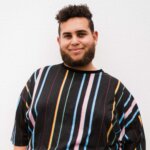The Assembly of First Nations (AFN) has deepened its affirmation of Two-Spirit people after its special chief assembly approved a resolution mandating the creation of its first LGBTQ2S+ council.
Squamish Nation Council Chairperson Khelsilem moved the resolution forward on Dec. 7 with support from Serpent River First Nation Chief Brent Bissaillion, who is Two-Spirit and queer. As proposed, the council would play a similar role to youth and elders’ councils within the AFN leadership structure, according to the CBC.
“As a queer Indigenous person, it was special for me to move this today,” Khelsilem tweeted following the resolution’s introduction.
The motion passed with unanimous approval. Although the LGBTQ2S+ council has yet to be formed, the CBC notes that it is likely to comprise two representatives from each of the AFN’s 10 regions, representing provinces like Ontario and Saskatchewan, as well as the territory of Yukon. The council is expected to coalesce by the end of the year.
The AFN is a nationwide organization representing more than 630 First Nation communities and 930,000 Indigenous people, according to its website.
The council’s formation could help to address longstanding critiques of the AFN. Its previous national chief, Perry Bellegarde, was criticized for the group’s slow progress toward implementing the 231 Calls for Justice that resulted from the National Inquiry into Murdered and Missing Indigenous Women and Girls and 2SLGBTQQIA people. The report consists of a set of recommendations to help address violence against Indigenous women, girls and Two-Spirit people.
Released in 2020, the report revealed that “persistent and deliberate human and Indigenous rights violations and abuses are the root cause behind Canada’s staggering rates of violence.” The 52-page Calls for Justice concluded: “These abuses and violations have resulted in the denial of safety, security, and human dignity.”
RoseAnne Archibald, the AFN’s incumbent national chief, pointed out on Twitter that the resolution to create an LGBTQ2S+ council fulfills at least one requirement of the Calls for Justice. Action item 18.2 demands that “governments and service providers to be inclusive of all perspectives in decision making, including those of 2SLGBTQQIA people and youth.”
The council’s formation also meets one of Archibald’s priority goals since being elected in July: to improve engagement of women and LGBTQ2S+ people in AFN’s political processes. Archibald, who is the first woman to be seated in her position, also hopes to improve leadership development and capacity building by 2024.
“The healing and strengthening of our Nations will occur when the voices of women, youth and 2SLGBTQQIA+ peoples are heard, respected and understood,” she wrote in a memo accompanying the Dec. 7 tweet.
The resolution also aims to bring more diverse experiences and perspectives to AFN’s leadership, which has been met with previous criticism for ignoring issues affecting Two-Spirit communities. A 2016 report from Rainbow Health Ontario found that Two-Spirit people face high rates of psychological trauma, intimate partner abuse and sexual violence, with 85 percent reporting at least one experience of sexual assault in their lifetimes.
Research also suggests that Two-Spirit people are at profound risk for suicidal ideation due to the compounding impact of colonization, racism, homophobia and transphobia. A 2020 report from The Trevor Project focusing on Native American communities in the U.S. found that Two-Spirit youth were twice as likely to attempt to end their lives in the past year as their non-LGBTQ2S+ peers.
Although advocates say that a lack of cultural competency prevents those with political power from addressing these phenomena, many expressed hope that the council could make a profound difference in the lives of Two-Spirit people. Bissaillion believes this milestone could be “the start of a movement where Two-Spirited people, gay, trans and all of these people are included in leadership decisions.
“And what a beautiful thing that will be,” he told the CBC.
The council’s formation is just the latest watershed moment for Two-Spirit representation this year. Canada’s first Two-Spirit and only Indigenous MP, Blake Desjarlais, was elected to Parliament in September as part of a record-breaking wave of victories for LGBTQ2S+ candidates. Currently, there are eight queer lawmakers seated in Parliament, the largest number in history.
Clarification: January 6, 2022 11:45 amThis story has been updated to note that there are no trans lawmakers in Canada’s Parliament, only MPs who identify under the queer umbrella.


 Why you can trust Xtra
Why you can trust Xtra


